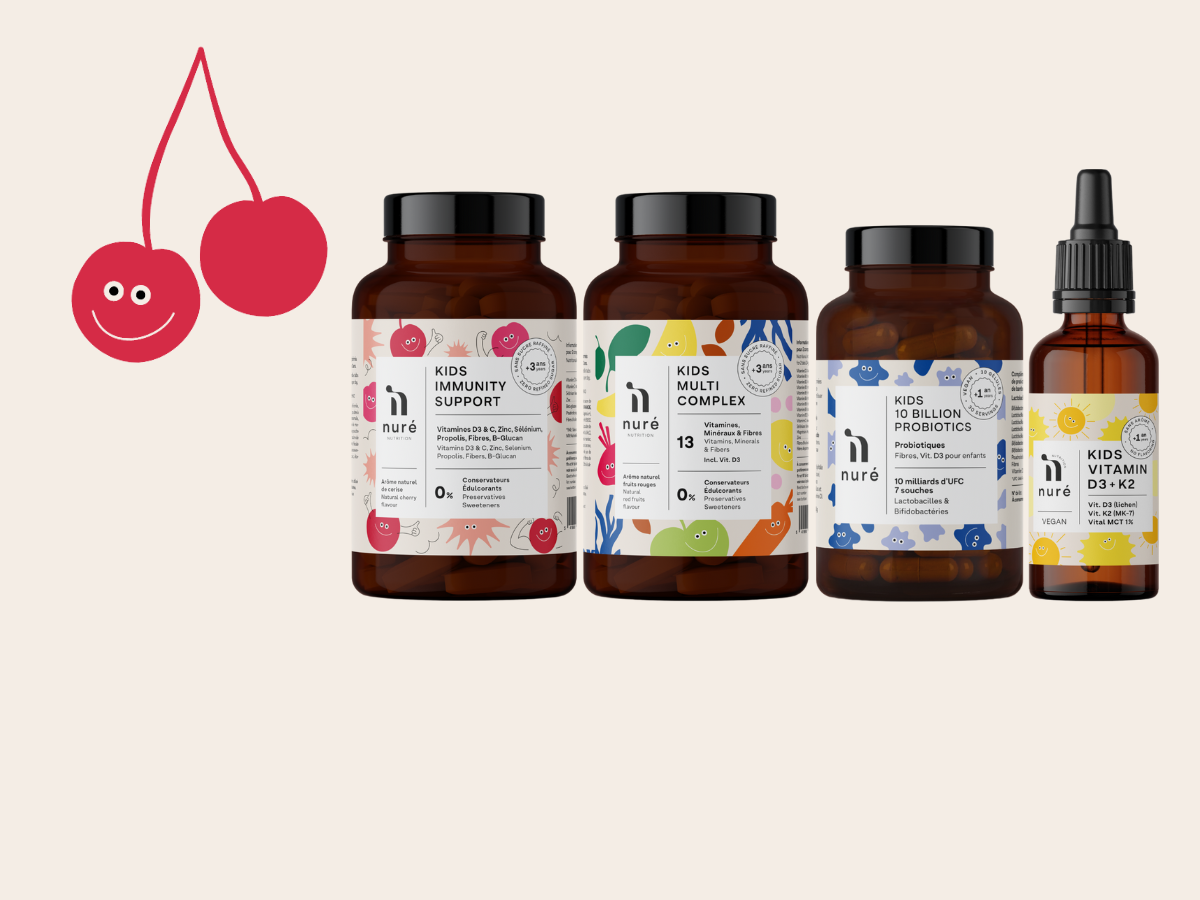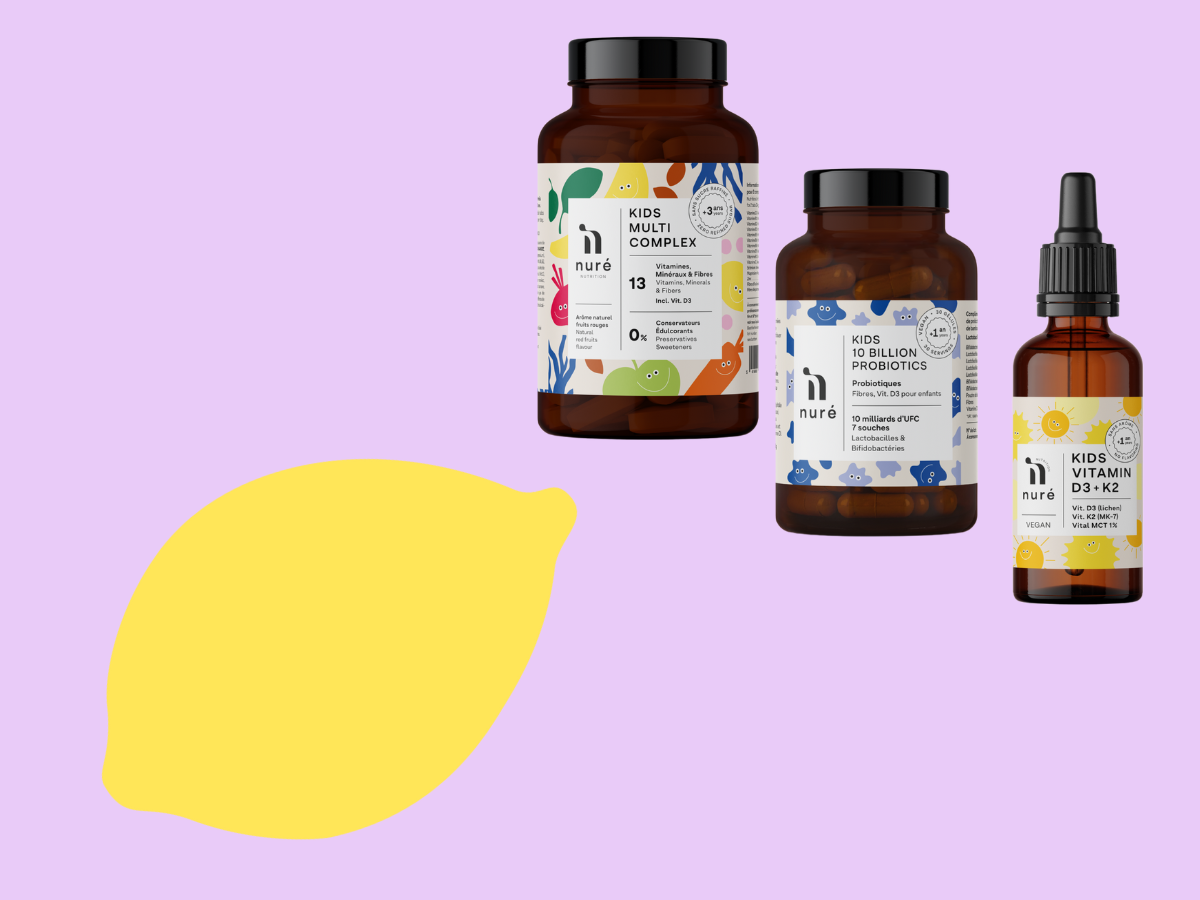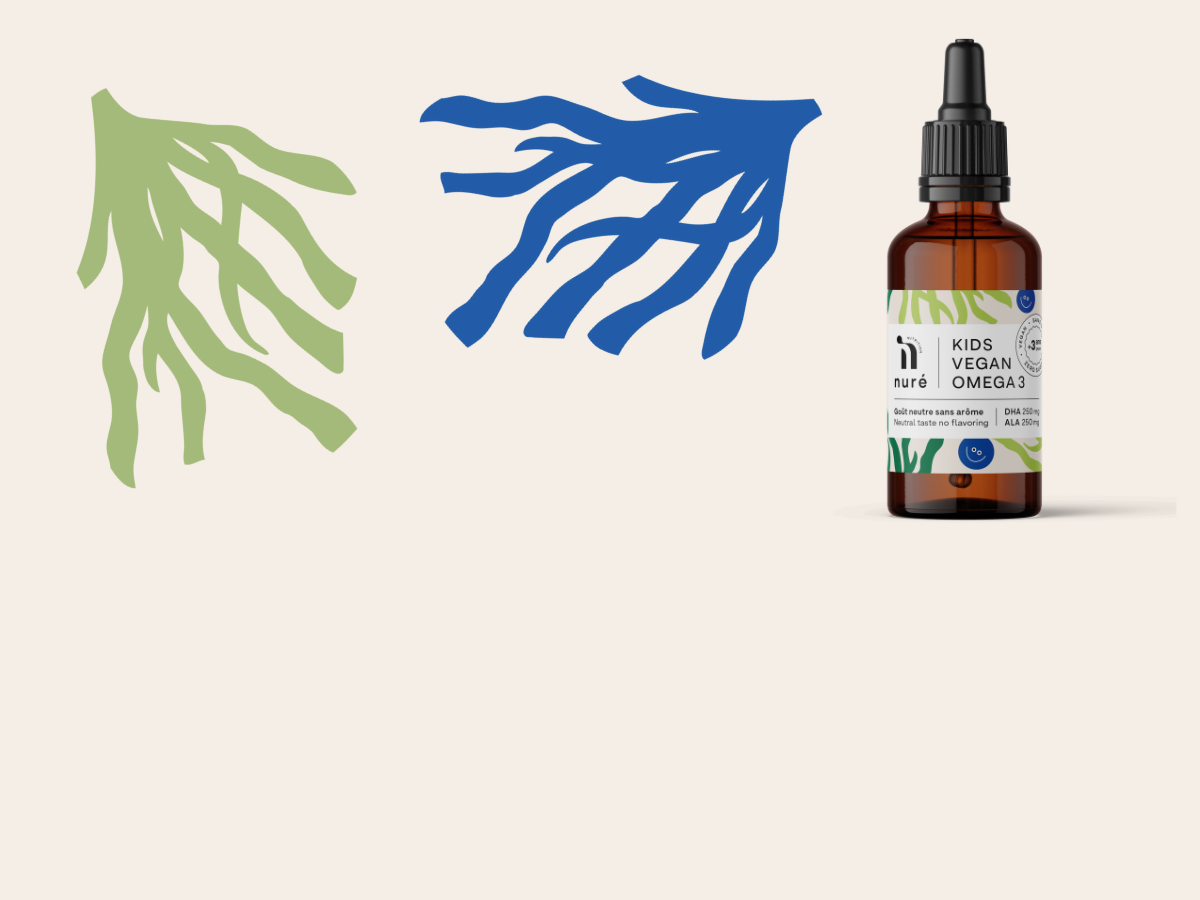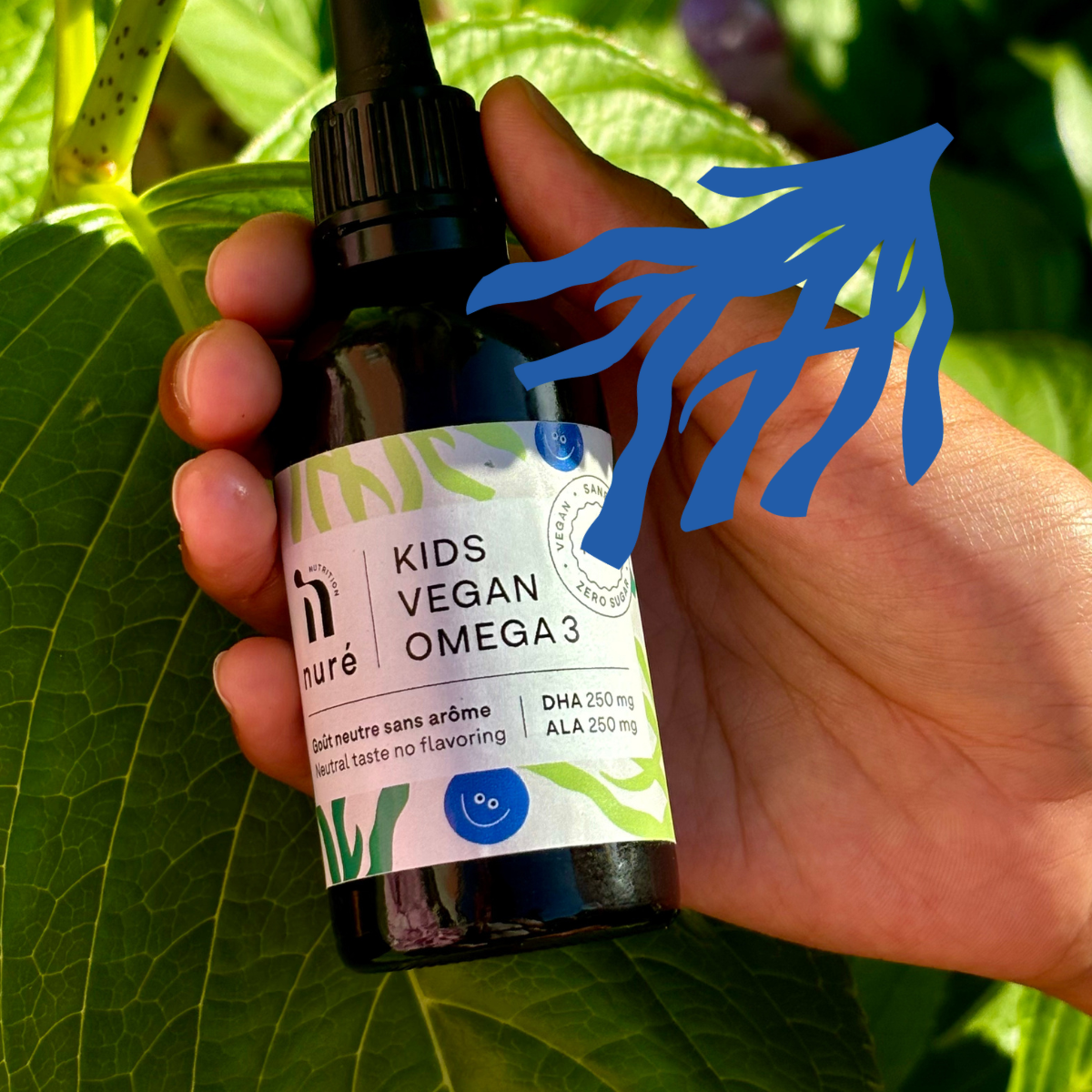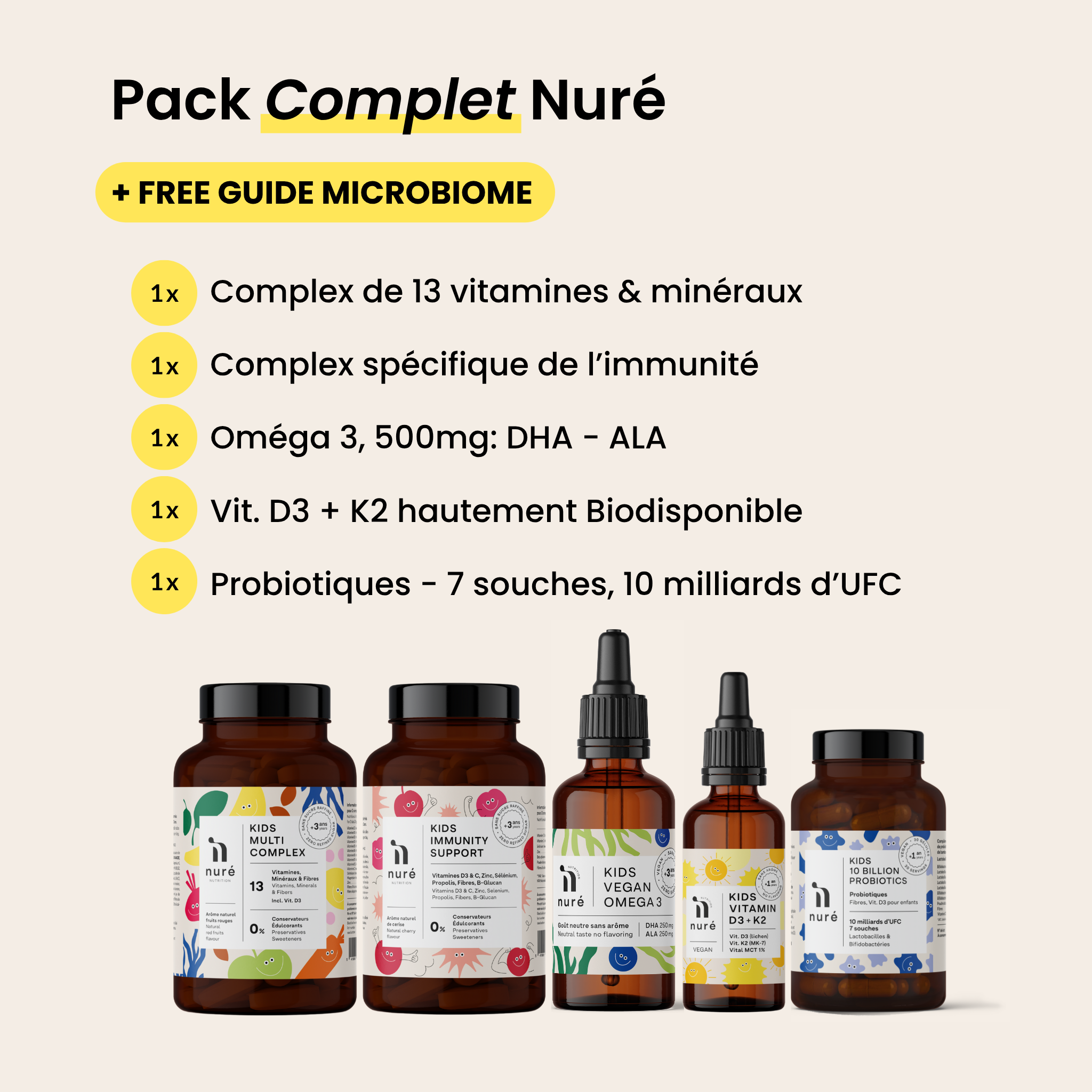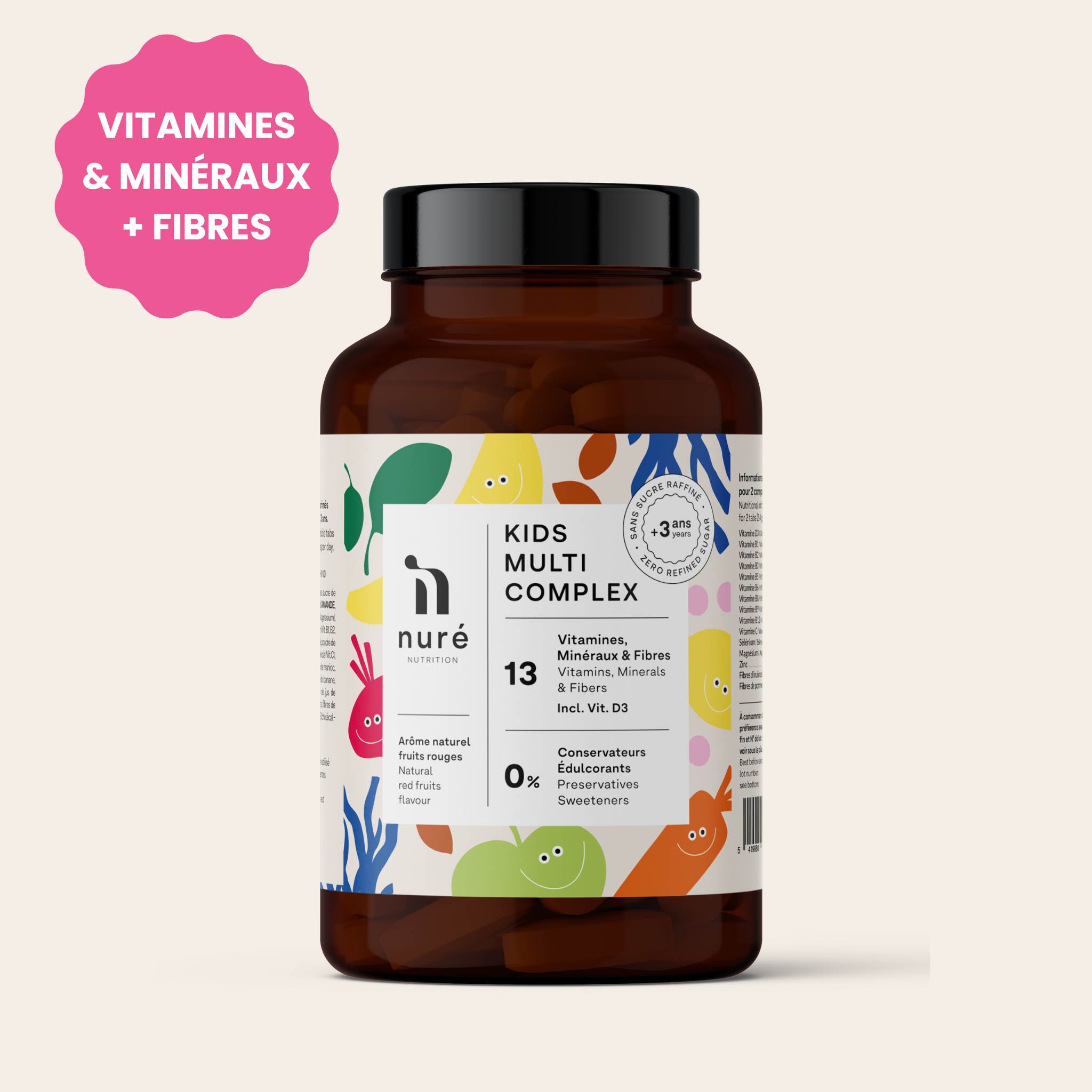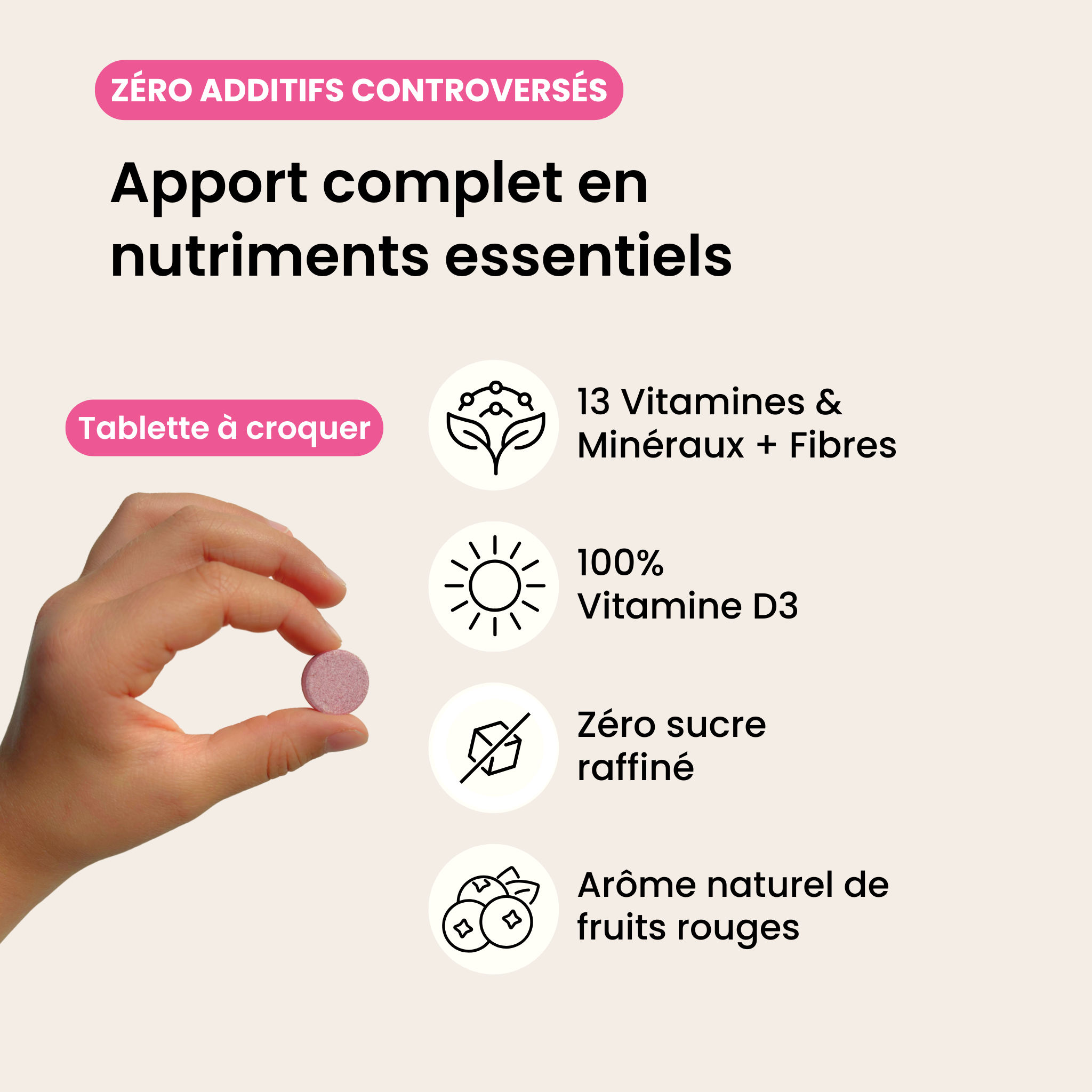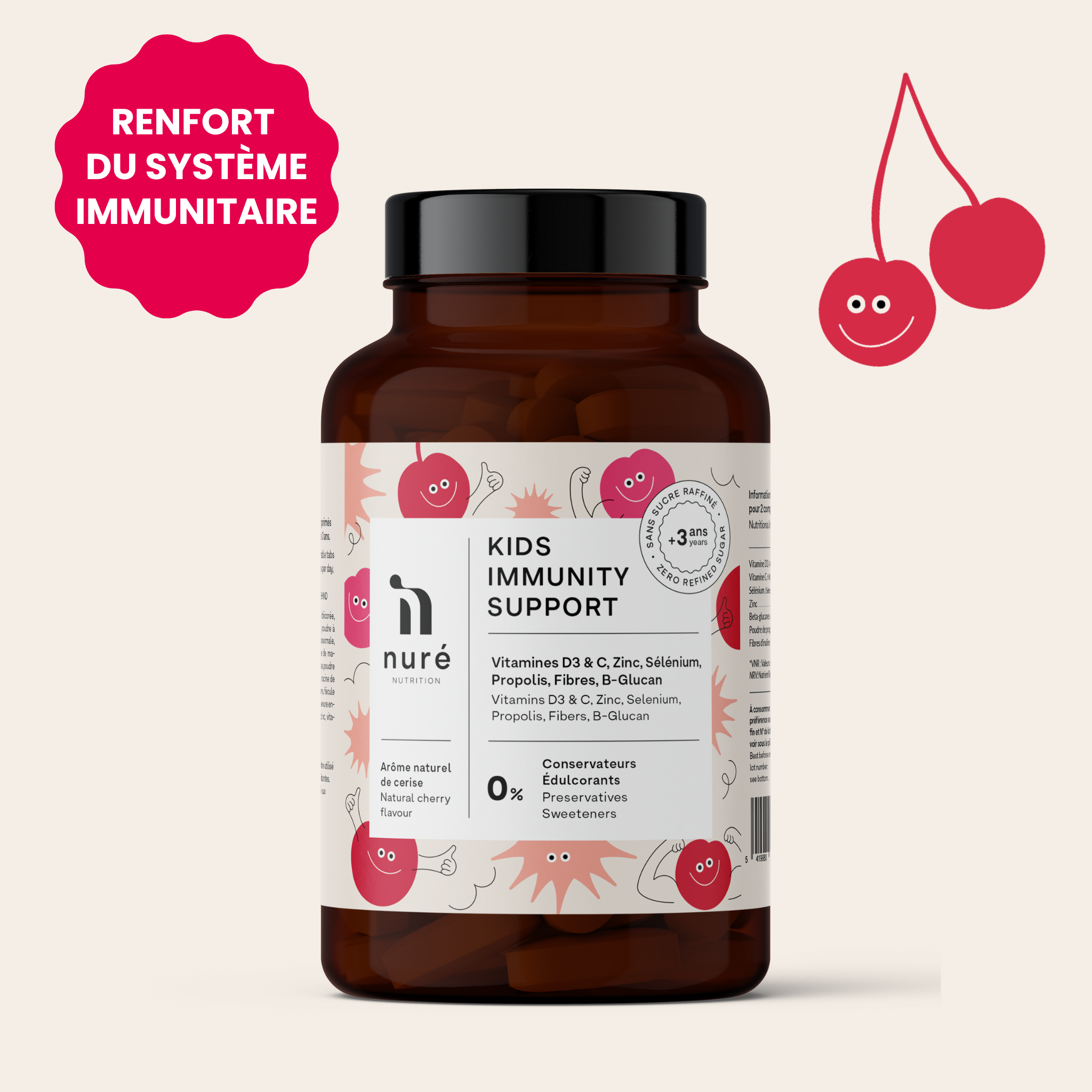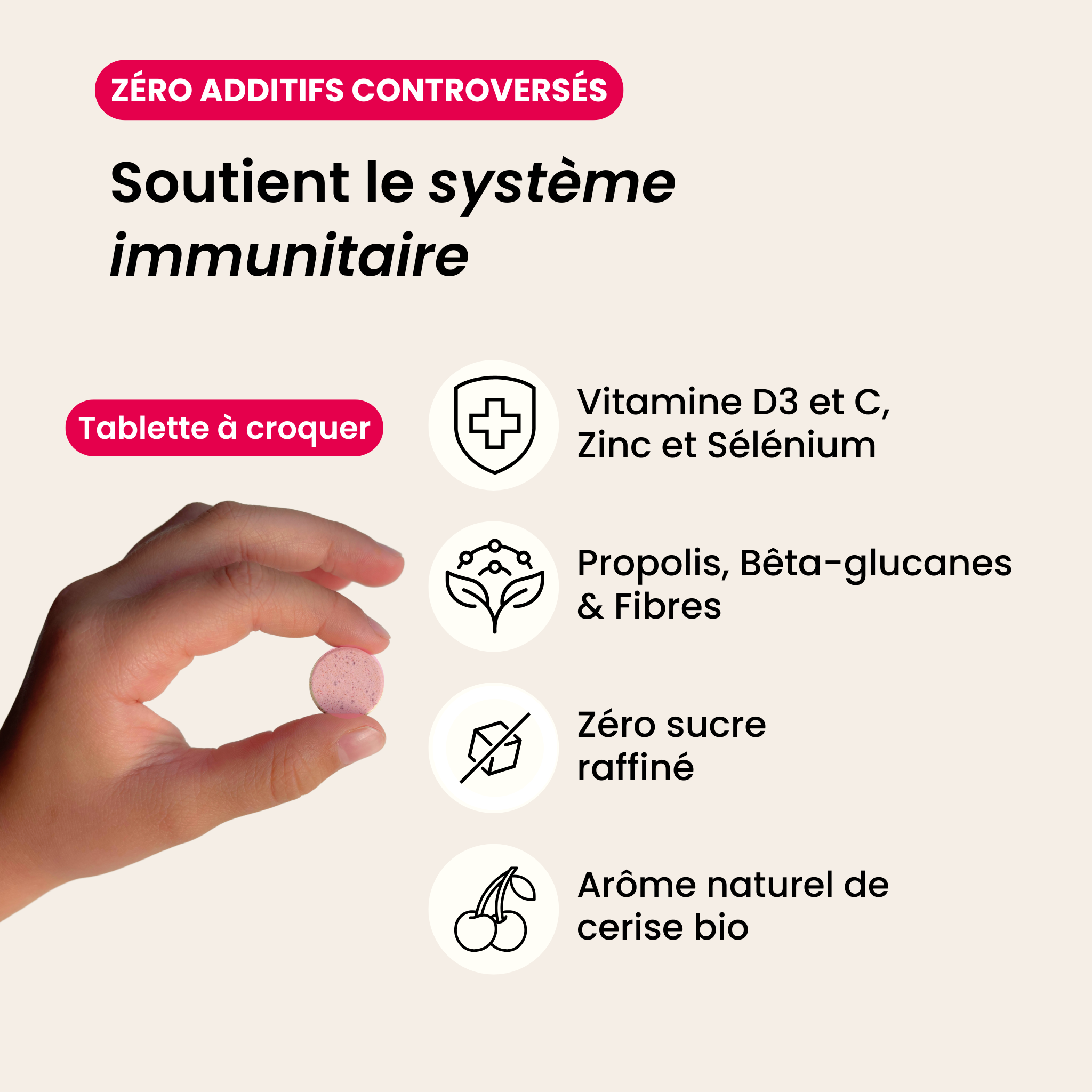In an ideal world, kids would get all the nutrients they need from a balanced diet. However, today’s busy lifestyles and declining food quality make it harder to ensure they’re getting enough. This article explores the essential role of key nutrients in your child’s health and development—and how supplements can help fill common nutritional gaps.
Why micronutrients matter for your child’s health and growth
Micronutrients play a crucial role in children’s physical and cognitive development, supporting optimal health at every stage of life. Many children don’t receive the necessary levels of these vital nutrients. A European study conducted in 2022 (1) highlighted significant deficiencies. Many children fall short of recommended intakes for potassium, magnesium, vitamins B1, B3, B9, zinc, selenium, and vitamins D and E. Additionally, 70 to 80% of the children studied had insufficient intakes of EPA/DHA, fiber, and iodine.
Diet diversity: why it’s harder than ever
Despite our efforts, children's diets often lack variety. According to a study by Credoc published in April 2019, only 23% of children benefit from a sufficiently healthy and varied diet. (2) With less time for cooking, processed foods have become the norm, and the nutritional quality of vegetables has significantly decreased. Did you know that, since the 1950s, fruits and vegetables have lost nearly 30% of their vitamins and minerals due to changes in farming practices? (3) According to a recent study, this decline represents one of the greatest challenges for future generations. (4)
How nutrient deficiencies impact each other
Micronutrient deficiencies are often interconnected. For example, low magnesium can prevent the activation of vitamin D. Vitamins A, C, and B improve iron absorption, while zinc helps metabolize vitamin A. Additionally, vitamins K and B12 are necessary for calcium absorption. This interdependence highlights the importance of a balanced intake of all nutrients.
How supplements can help
While a varied and balanced diet is essential, dietary supplements can help to fill the nutritional gaps that food alone might no longer cover. They are a key support in completing your child’s nutritional intake, strengthening their immunity, and boosting their overall well-being.
Choosing high-quality supplements for your child
Always choose natural products that are free from controversial additives and refined sugars. Look for high-quality, highly bioavailable vitamins and minerals, which are easier for the body to absorb. By carefully reading ingredient lists and avoiding potentially harmful substances, you can confidently support your child’s nutritional needs. For more tips on selecting the right supplements for your children, check out our blog article here.
Discover Nuré Nutrition’s dietary supplements for children
Explore our range of natural dietary supplements for children, specially designed to complement their diet and support their immunity and well-being. Developed by a nutritionist specialized in child nutrition, in collaboration with biologists and micronutrition experts from three renowned laboratories in France, our range ensures natural and effective nutrient intake. We use only highly bioavailable, high-quality vitamins and minerals, ensuring easy absorption and real benefits, so you can confidently give your child the very best.
Discover Nuré Nutrition kids supplements
References:
(1) “Adherence to Dietary Recommendations of 7-Year-Old Children from a Birth Cohort in Friuli Venezia Giulia, Italy.” E. Giordani, M. Marinoni, F. Fiori, et al. Nutrients. 2022; 14(3): 515. URL: https://doi.org/10.3390/nu14030515Credoc. (2019).
(2) Study on children's diet diversity in Europe. "Calcium: entre 6 et 10 ans, près d’un enfant sur deux est en dessous des recommandations.” G. Tavoularis. Consommation et modes de vie. CREDOC, No. 304, ISSN 0295-9976, avril 2019. URL: https://www.credoc.fr/publications/calcium-entre-6-et-10-ans-pres-dun-enfant-sur-deux-est-en-dessous-des-recommandations
(3) "Changes in USDA food composition data for 43 garden crops, 1950 to 1999.” D.R. Davis, et al. Journal of the American College of Nutrition. 2004; 23(6): 669-682. URL:https://doi.org/10.1080/07315724.2004.10719409https://pubmed.ncbi.nlm.nih.gov/38540869/
(4) "An Alarming Decline in the Nutritional Quality of Foods: The Biggest Challenge for Future Generations' Health.” R.L. Bhardwaj, A. Parashar, H.P. Parewa, L. Vyas. Foods. 2024; 13(6):877. PMID: 38540869 | PMCID: PMC10969708 | DOI: 10.3390/foods13060877 URL: https://pubmed.ncbi.nlm.nih.gov/38540869/

